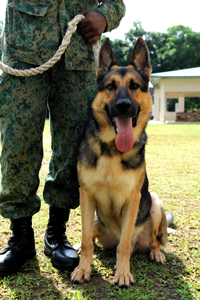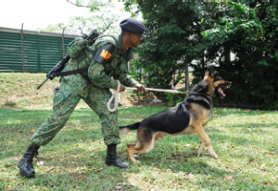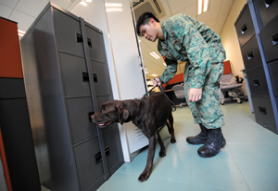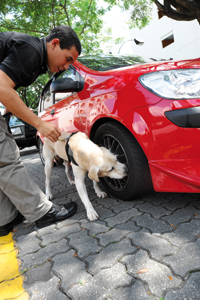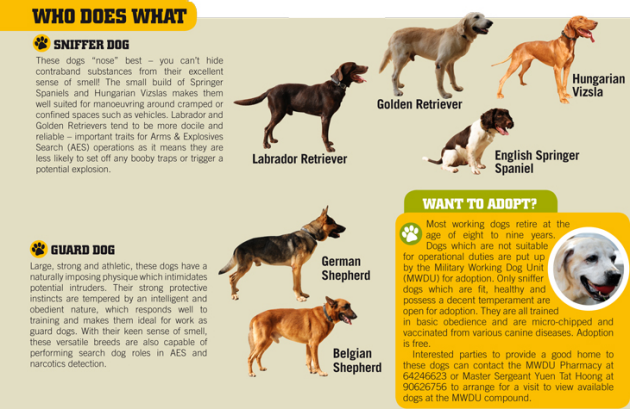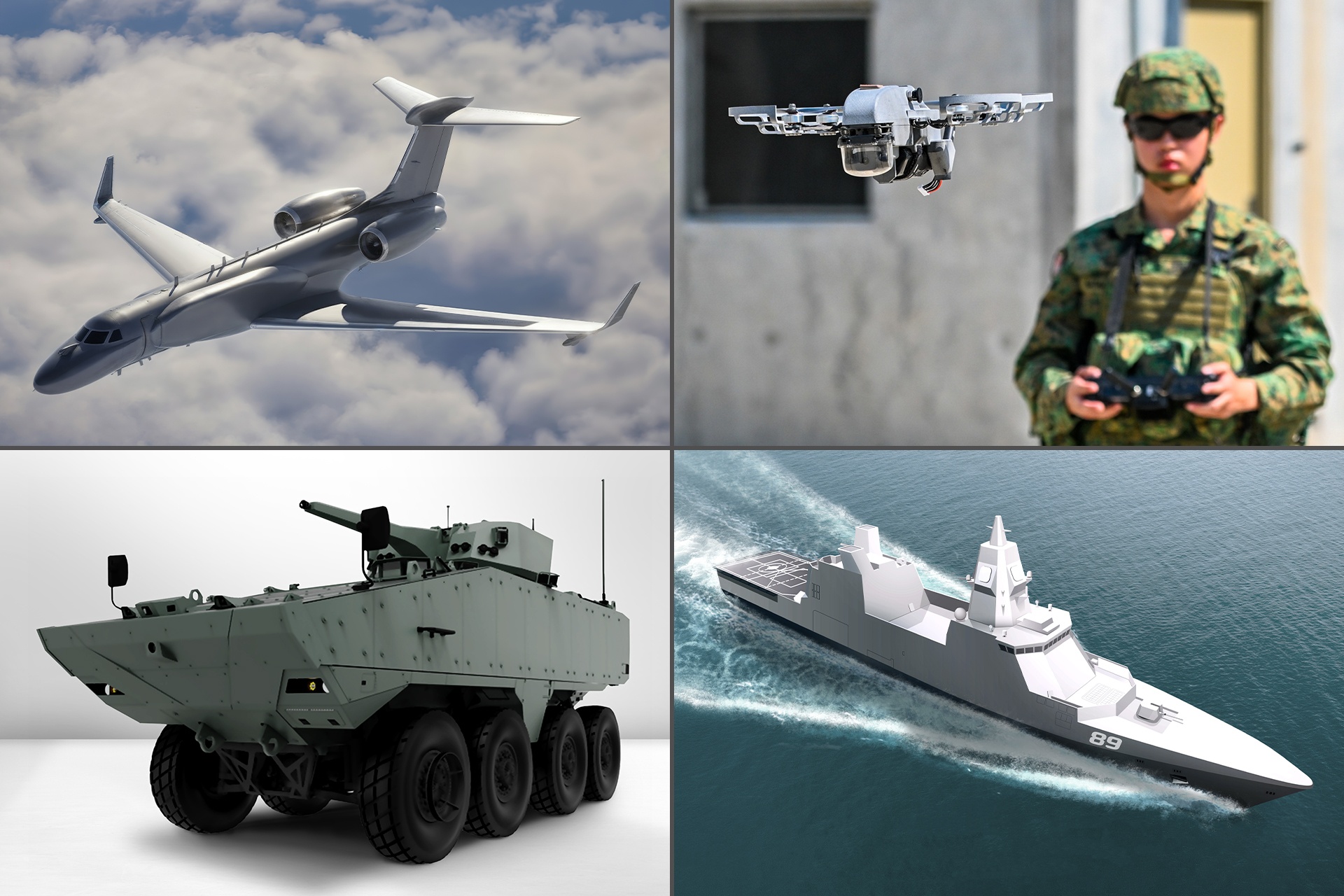OPS & TRAINING
A (SERVICE)MAN'S BEST FRIEND
17 Jun 2010
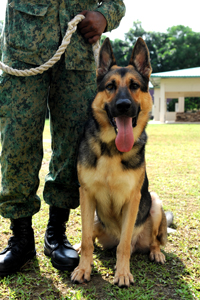
They are loyal, dedicated and extremely well trained. PIONEER takes a closer look at this special breed of soldiers in the Military Working Dog Unit (MWDU) of the Singapore Armed Forces (SAF) Military Police Command (MP Comd).
Like any other dog, Rex II enjoys playing a game of "fetch" and going for long walks. The two-year-old German Shepherd, however, is not your average household pet.
Be it clearing simulated obstacles - such as crawling through tunnels and jumping through flaming hoops - or chasing down trespassers, Rex II can do it all. He is one of many dogs whose powerful senses are used to assist servicemen in the SAF MP Comd's operations.
Specially acquired by the MWDU from countries such as the Netherlands, Thailand and Australia, these four-legged soldiers typically start their military careers at around one-and-a-half years of age, said Head MWDU Master Warrant Officer Rajamanikam.
While the duration may vary from individual to individual, the entire training period for most dogs is usually about three months (roughly equivalent to two dog years). Each canine begins its training with obedience lessons, followed by specialised training in one of three main areas: guard dog operations, Arms and Explosives Search (AES) or narcotics detection.
Trained for operations
A military dog's life is certainly no piece of cake as dogs like Falco (Belgian Shepherd), together with his handler, 3rd Sergeant Yudhish Jayakumaran, a military policeman from the 2nd People's Defence Force, help to guard various key installations throughout Singapore round the clock. Such installations include certain air, naval and ammunition bases and strategic civilian installations like Jurong Island.
Rostered for sentry duty, the guard dogs take turns to stand watch at certain checkpoints - their presence providing a strong deterrence to intruders. At night, the guard dogs prowl along designated routes.
"Sniffer" dogs like the AES-trained Chico and narcotics-detection-trained AE - both Labrador Retrievers - also play a vital role in augmenting security measures across the SAF.
Trained to identify the scent of explosive substances, AES dogs are often called upon to provide security support for high-profile events taking place in Singapore, often for long hours.
For instance, Corporal (CPL) Aaron Mealin from the 36th Battalion, Singapore Combat Engineers was deployed to perform security sweeps at the Suntec Singapore International Convention & Exhibition Centre during the Asia-Pacific Economic Cooperation (APEC) meeting in 2009.
"The sweep lasted throughout the night, but our dogs kept on working with us and showed no signs of giving up no matter how tired they were," he noted.
And while humans require more than half an hour to conduct a thorough search of a room for narcotics, the narcotics detection dogs can do the same in a much shorter time.
Guided by their handlers, these dogs are capable of finding hidden drugs by scent, even if the drugs are concealed within closed cupboards and bags.
It takes two
While the trainers and handlers are the "leaders of the pack", the relationship between man and animal is definitely more than just that of work buddies.
"Building a strong bond is very important. Each dog has a different personality, and you have to spend time to understand its likes and dislikes, and know how to maximise its potential to deploy it effectively," explained CPL Patrick Yong, an Operations Team Member from MWDU.
Even something as simple as daily grooming and feeding or bringing it out for exercise helps the dog to accept you as its master, he added. "Only then will the dog be willing to work and do its utmost for you."
The most rewarding thing about his work as a dog handler? "Just the happy look in its eyes when it sees me. It makes me feel that all the effort I put into training and taking care of it is worth it.
Every dog lover knows what I mean," said CPL Yong with a smile.
ALSO READ IN OPS & TRAINING
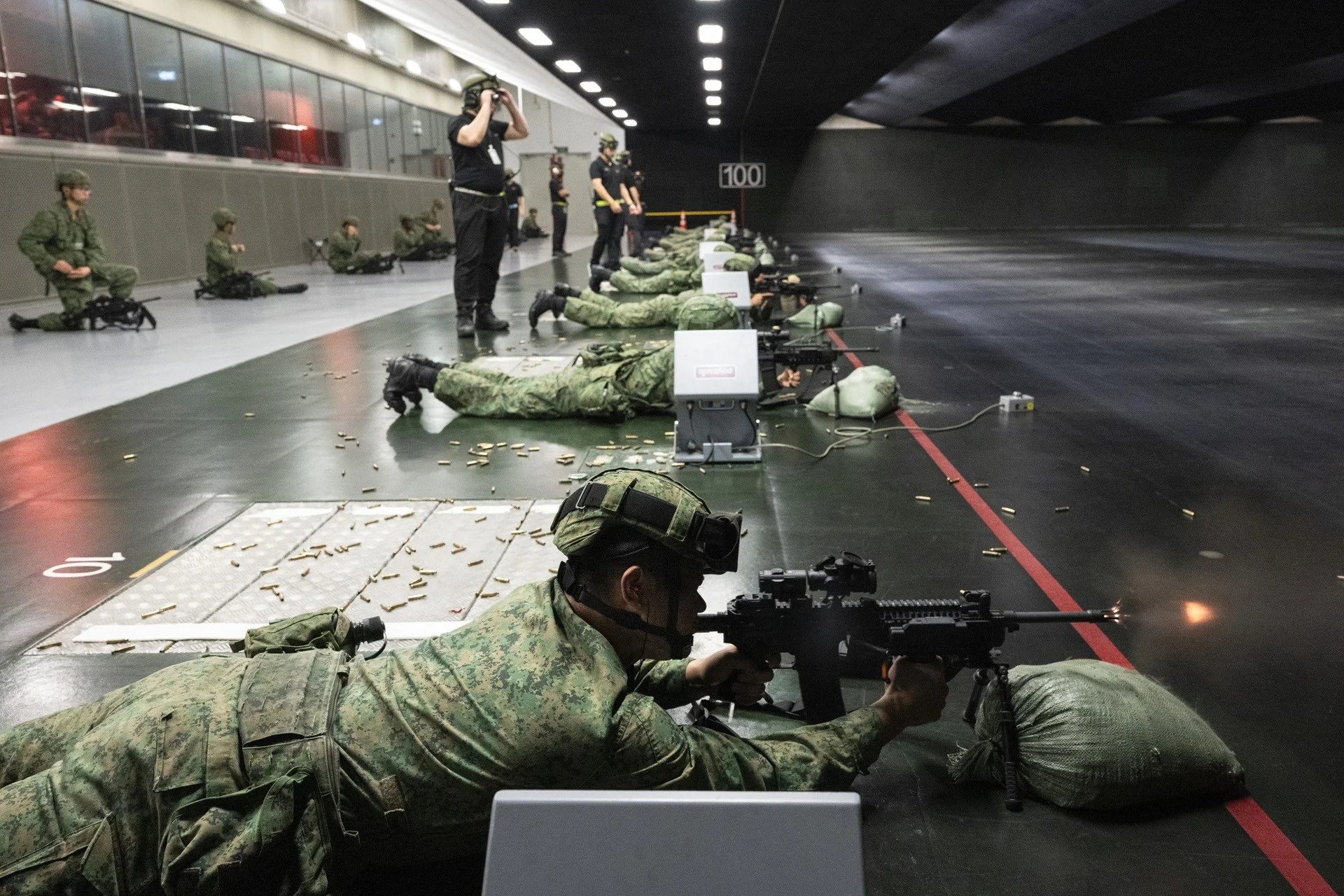
New firing range complex at Bedok Camp; Medical Classification System to be redesigned
27 Feb 2026
To train soldiers for a more complex environment, the SAF will build a new Multi-Mission Range Complex, as well as introduce opportunities for national servicemen to take on new roles, and more ways to volunteer.
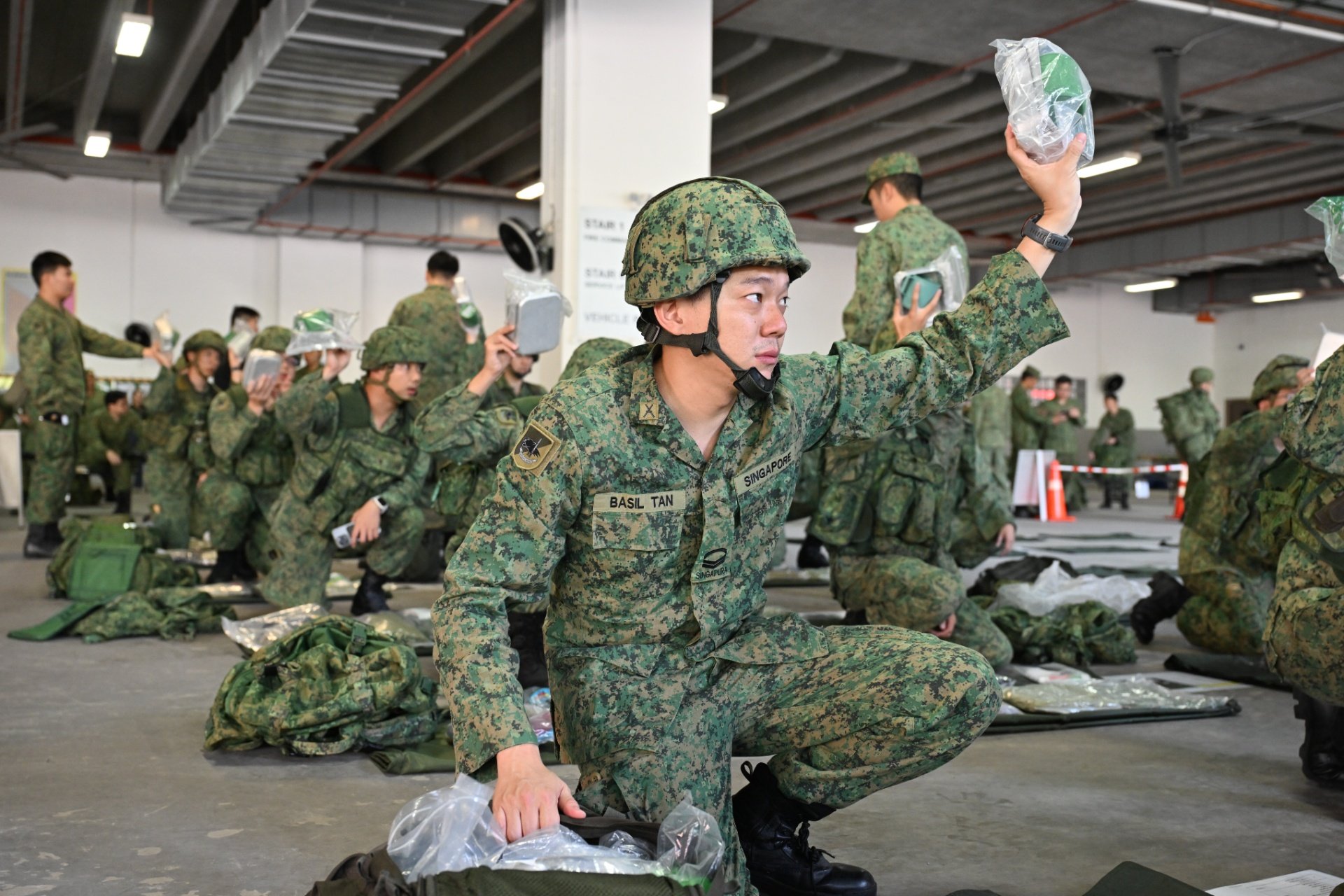
Reaffirming their commitment to defence
07 Feb 2026
Over 3,000 NSmen displayed their commitment to Singapore’s defence at a MOBEX in Selarang Camp.
First in, last out at Ex Wallaby 2025
06 Nov 2025
Meet the teams who toil behind the scenes to enable the smooth conduct of the SAF’s biggest unilateral overseas exercise.

